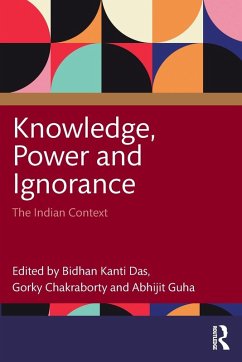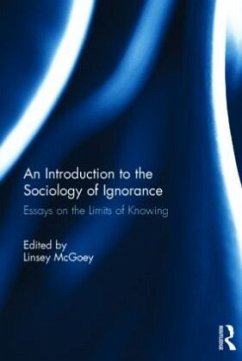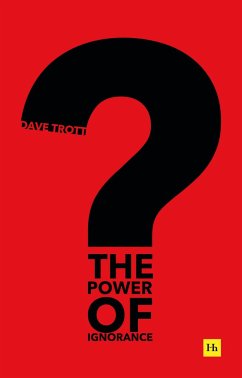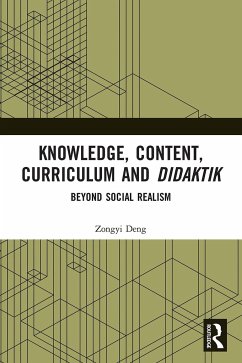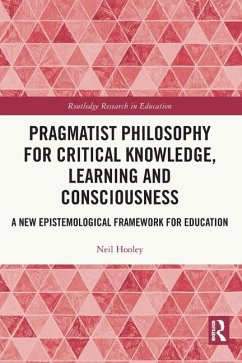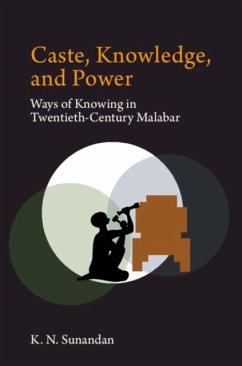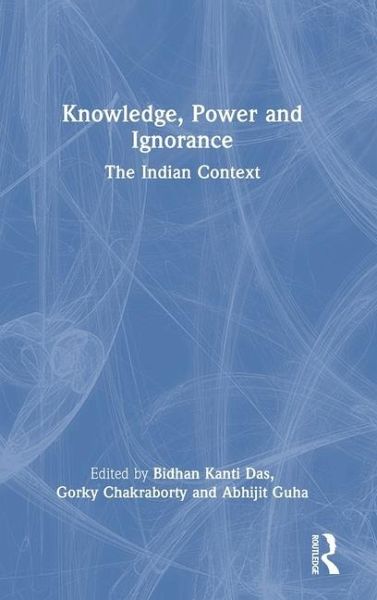
Knowledge, Power and Ignorance
The Indian Context
Herausgegeben: Kanti Das, Bidhan; Chakraborty, Gorky; Guha, Abhijit
Versandkostenfrei!
Versandfertig in 6-10 Tagen
154,99 €
inkl. MwSt.

PAYBACK Punkte
77 °P sammeln!
What is knowledge, and ignorance? How is it decided? Do power and power relations influence this process? Does the spread of knowledge lead to more ignorance? Is ignorance socially produced? Is knowledge always socially contextualized? This book deals with these important questions on the interplay of knowledge, ignorance and power located in varied contexts in India.As systematic knowledge grows, so does the possibility of ignorance. Ignorance is a state which people attribute to others and is loaded with moral judgment. Thus, being underdeveloped often 'implies a kind of stupidity or failure...
What is knowledge, and ignorance? How is it decided? Do power and power relations influence this process? Does the spread of knowledge lead to more ignorance? Is ignorance socially produced? Is knowledge always socially contextualized? This book deals with these important questions on the interplay of knowledge, ignorance and power located in varied contexts in India.
As systematic knowledge grows, so does the possibility of ignorance. Ignorance is a state which people attribute to others and is loaded with moral judgment. Thus, being underdeveloped often 'implies a kind of stupidity or failure'. This volume seeks to be premised in a framework where ignorance is understood as being a socially produced and maintained phenomenon, where the ways of knowing and not knowing are interdependent. It is a novel attempt for an academic re-orientation of the Knowledge-Ignorance paradigm through a process of re-interpretation of the bounded purview attached with the existing epistemological understandings. It focuses on concrete case studies, often with an ethnographic stint. The volume critically looks at various aspects: Epistemological Issues; Understanding Community Perspectives and the State; Natural Resources, Power and Ignorance; Media and Production of Non-Knowledge; and other emerging areas. Each essay bears a striking similarity - that of understanding the complex processes and dynamics of the production of ignorance in a field of commonly held beliefs of 'knowledge' - be it scientific, societal, religious, magical or political - through the overarching realm of power.
This interdisciplinary volume will be of interest to a cross-section of academics and students of sociology, social anthropology, political science, human geography, history, public policy and development studies.
As systematic knowledge grows, so does the possibility of ignorance. Ignorance is a state which people attribute to others and is loaded with moral judgment. Thus, being underdeveloped often 'implies a kind of stupidity or failure'. This volume seeks to be premised in a framework where ignorance is understood as being a socially produced and maintained phenomenon, where the ways of knowing and not knowing are interdependent. It is a novel attempt for an academic re-orientation of the Knowledge-Ignorance paradigm through a process of re-interpretation of the bounded purview attached with the existing epistemological understandings. It focuses on concrete case studies, often with an ethnographic stint. The volume critically looks at various aspects: Epistemological Issues; Understanding Community Perspectives and the State; Natural Resources, Power and Ignorance; Media and Production of Non-Knowledge; and other emerging areas. Each essay bears a striking similarity - that of understanding the complex processes and dynamics of the production of ignorance in a field of commonly held beliefs of 'knowledge' - be it scientific, societal, religious, magical or political - through the overarching realm of power.
This interdisciplinary volume will be of interest to a cross-section of academics and students of sociology, social anthropology, political science, human geography, history, public policy and development studies.





